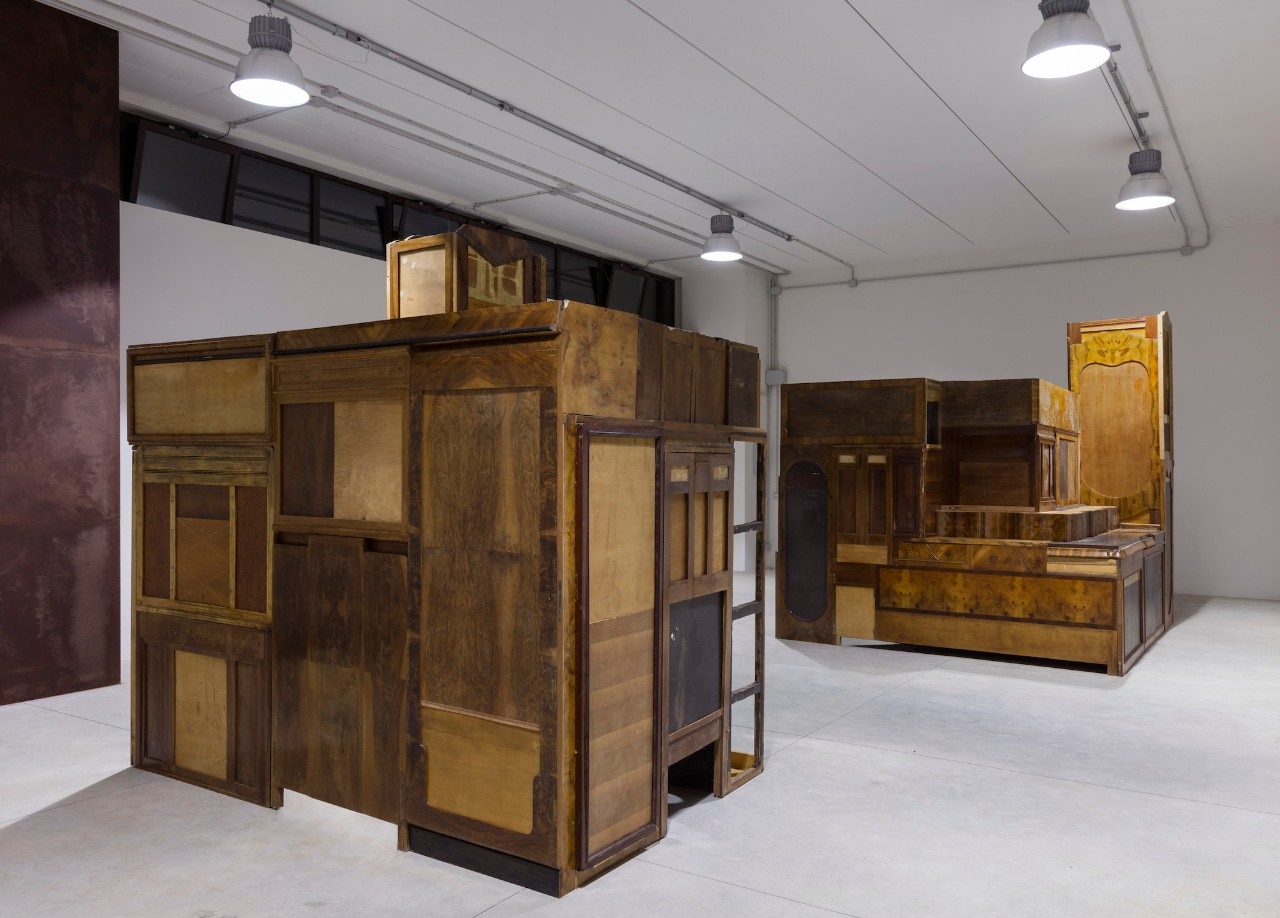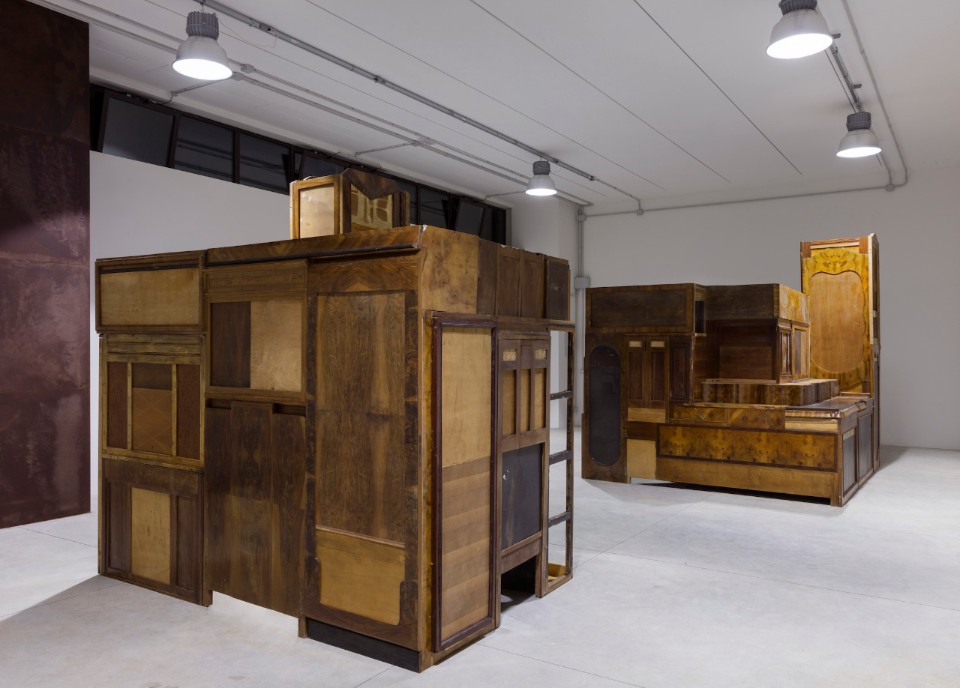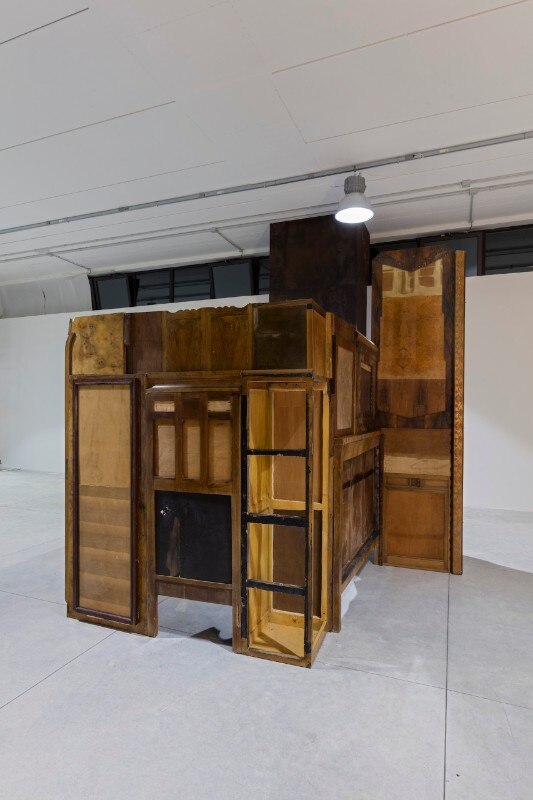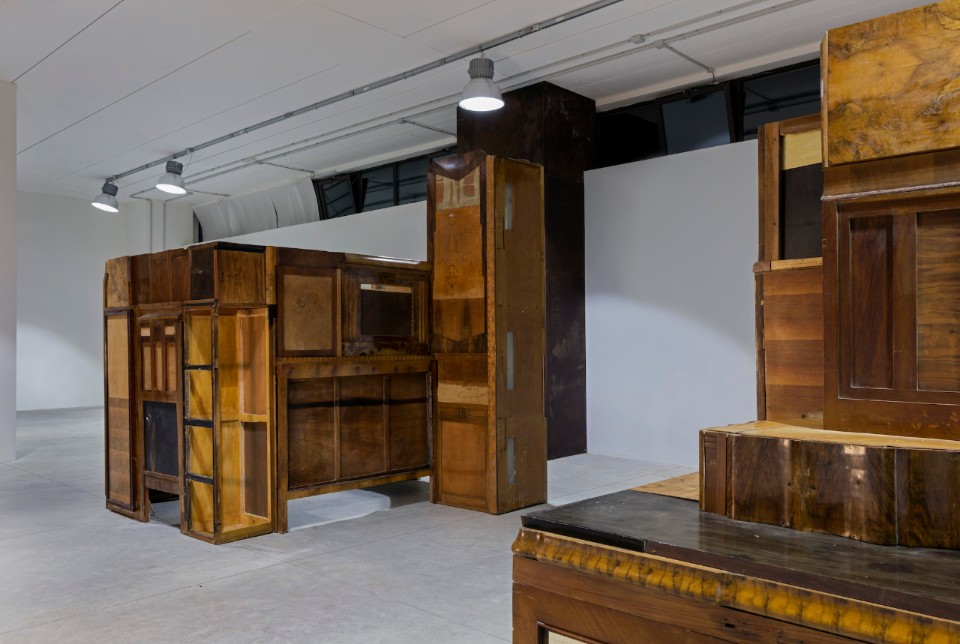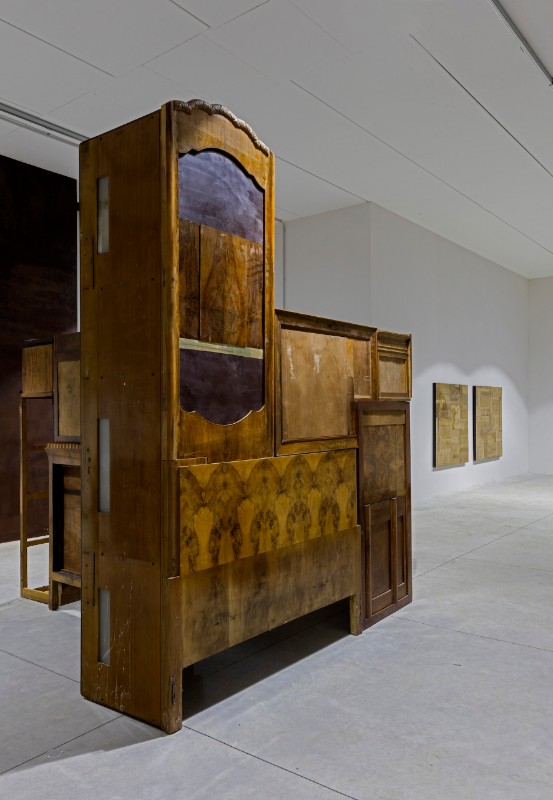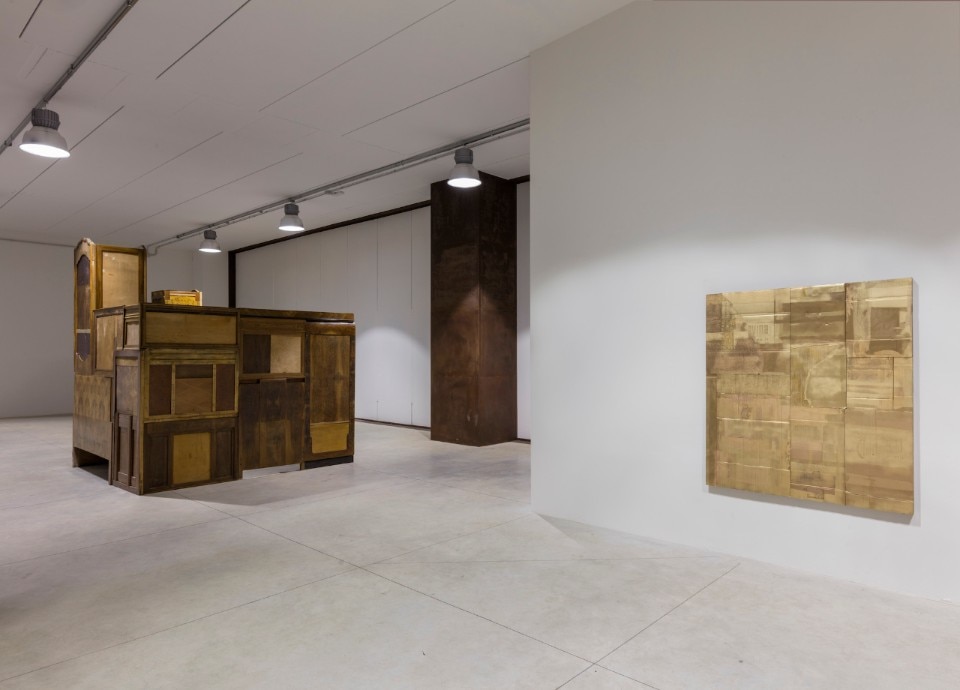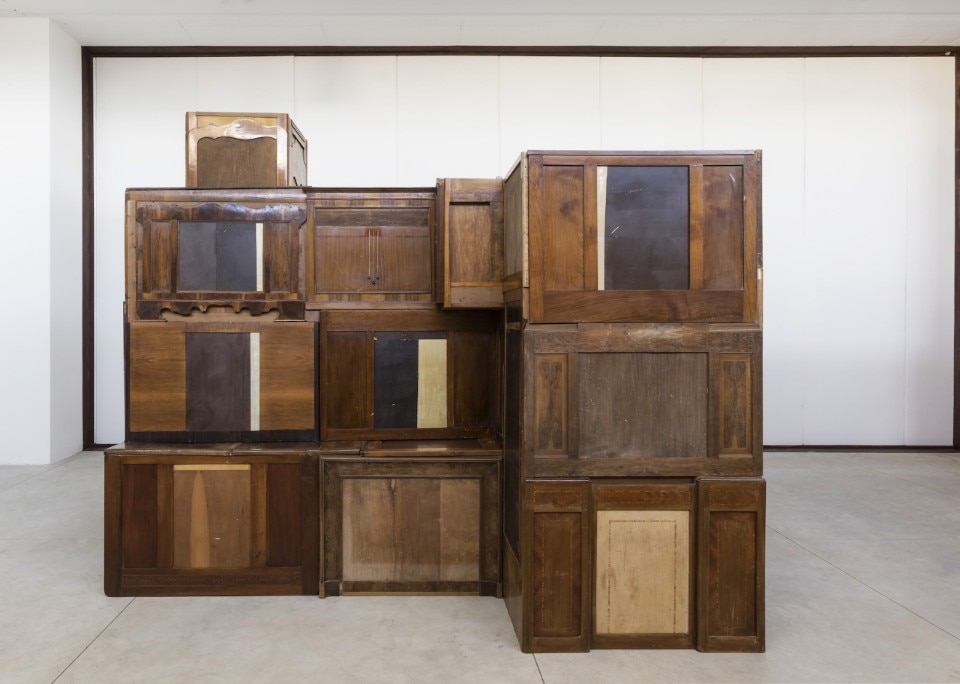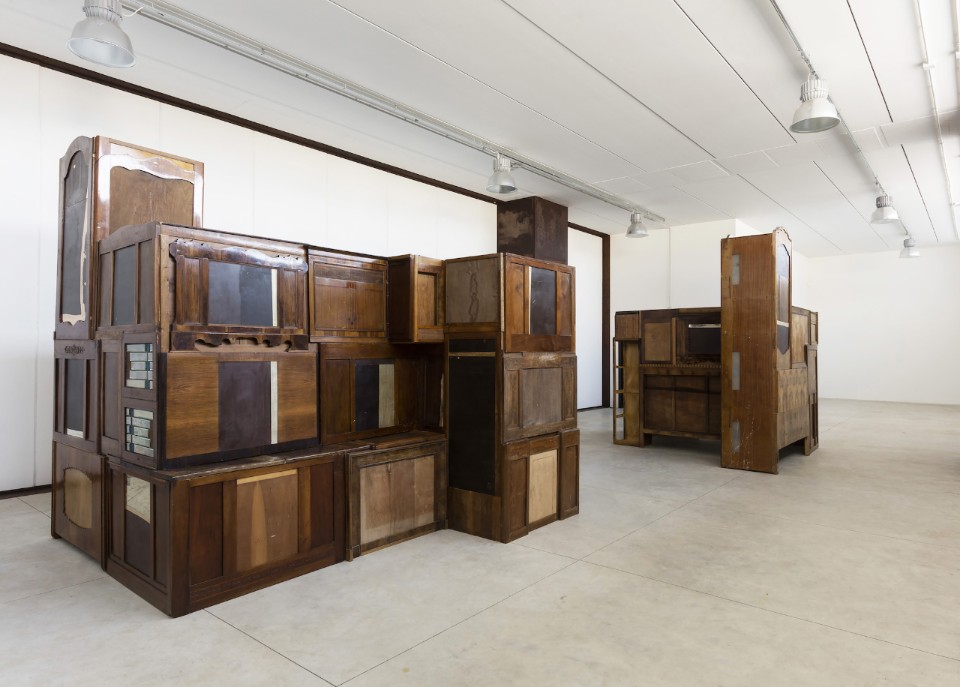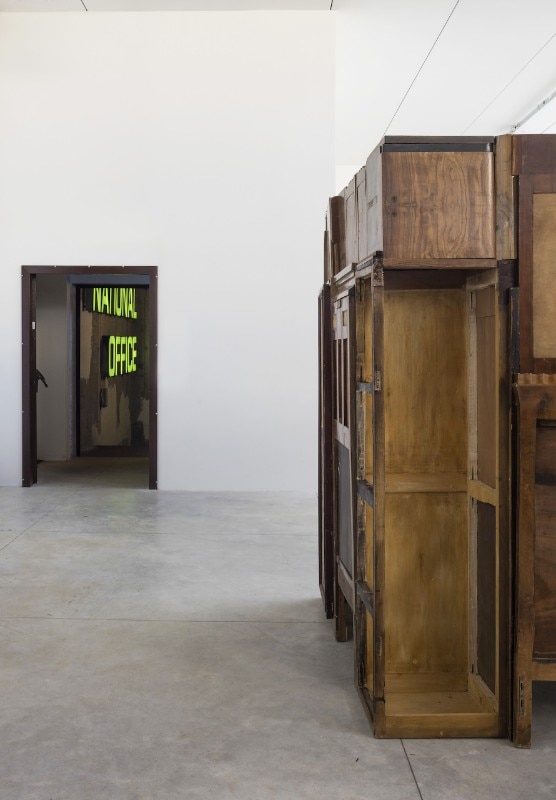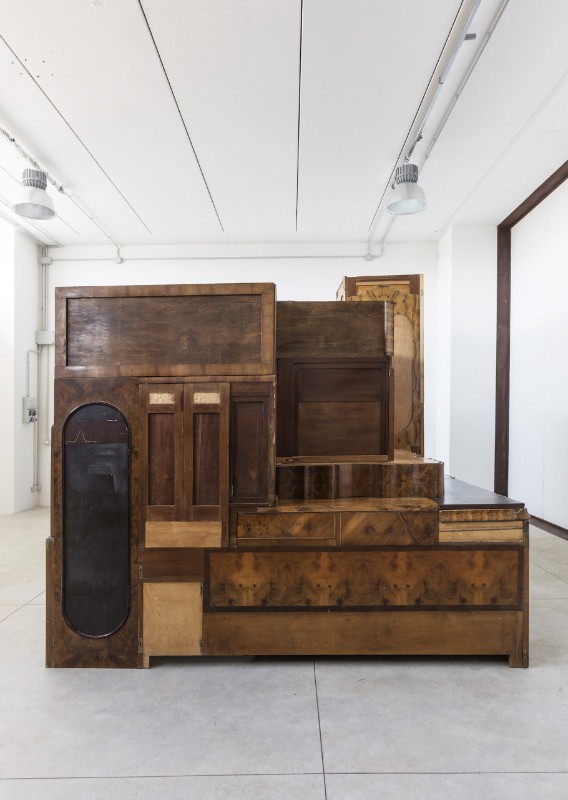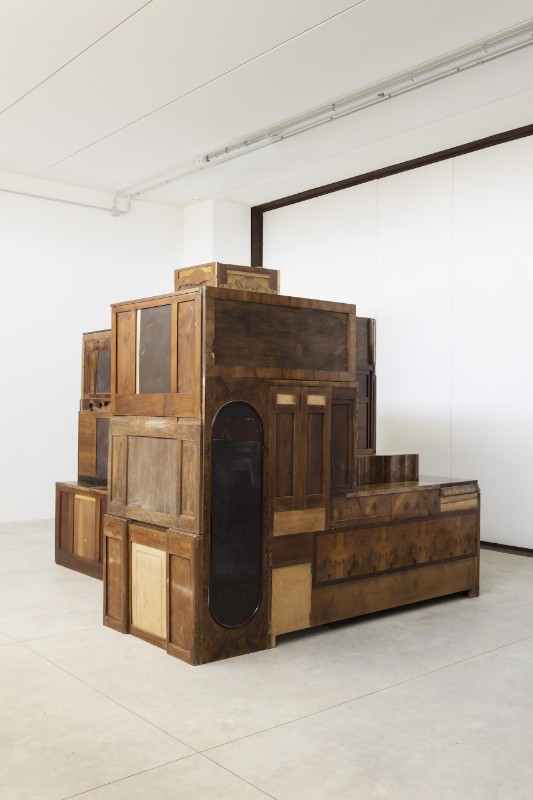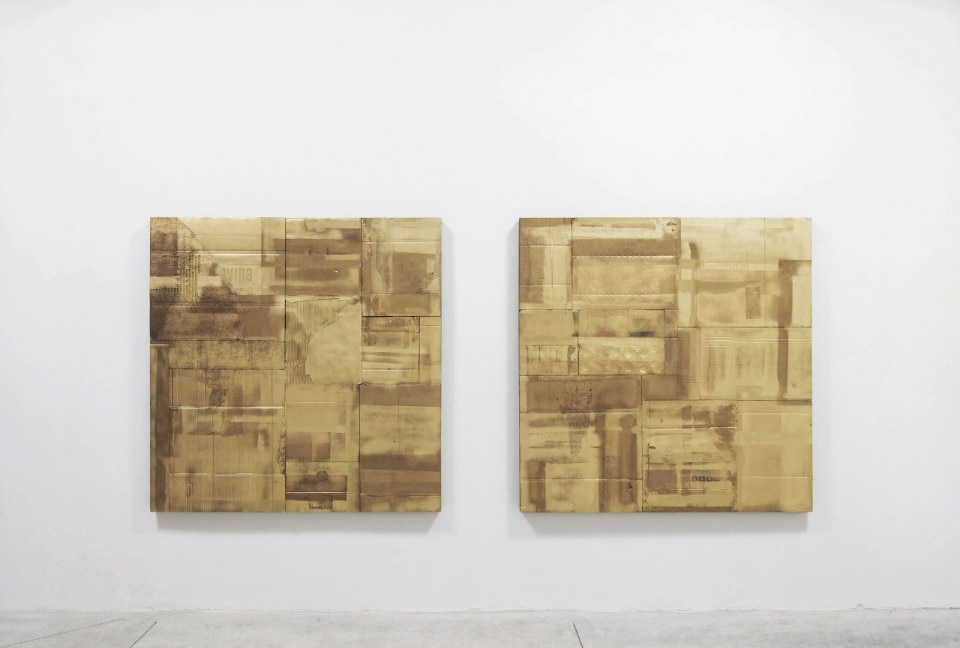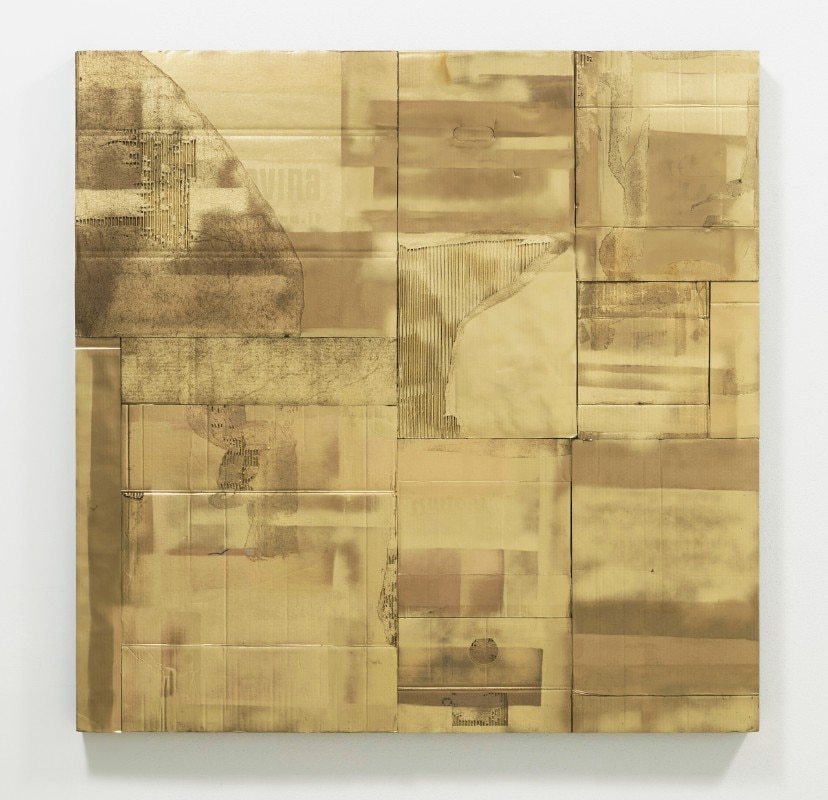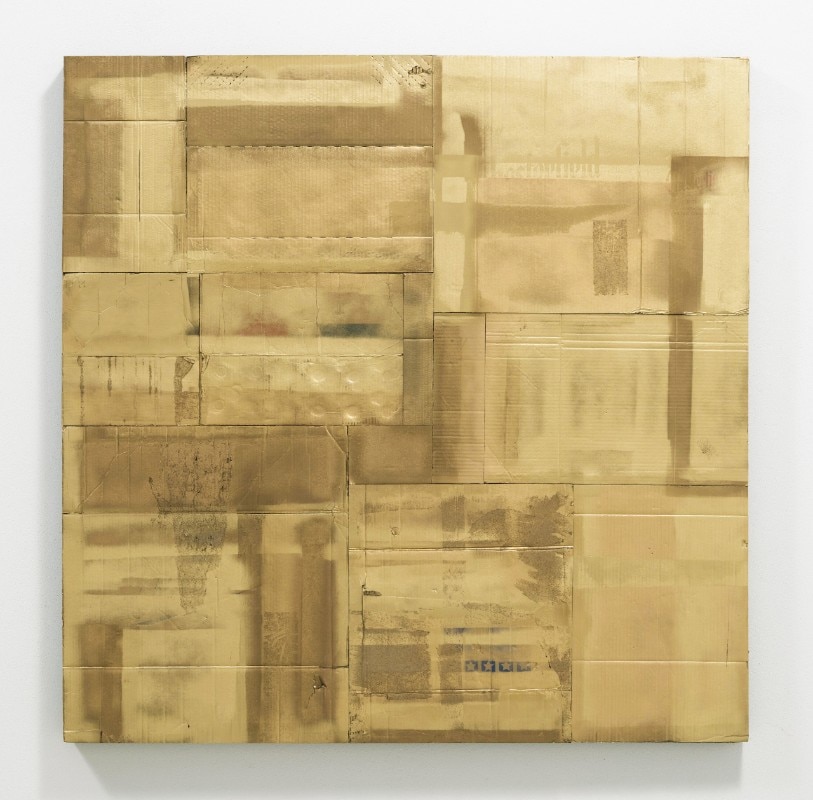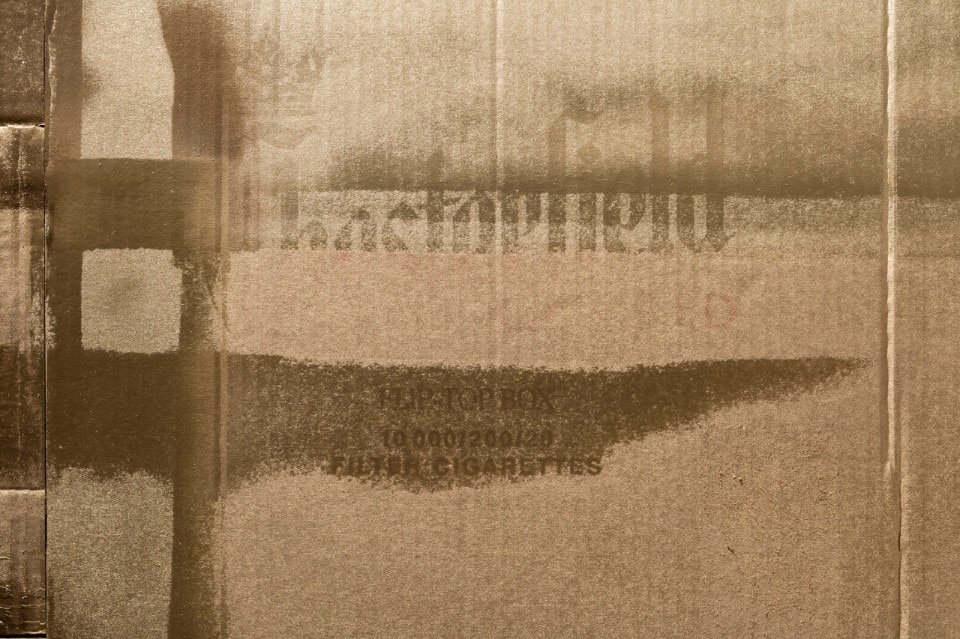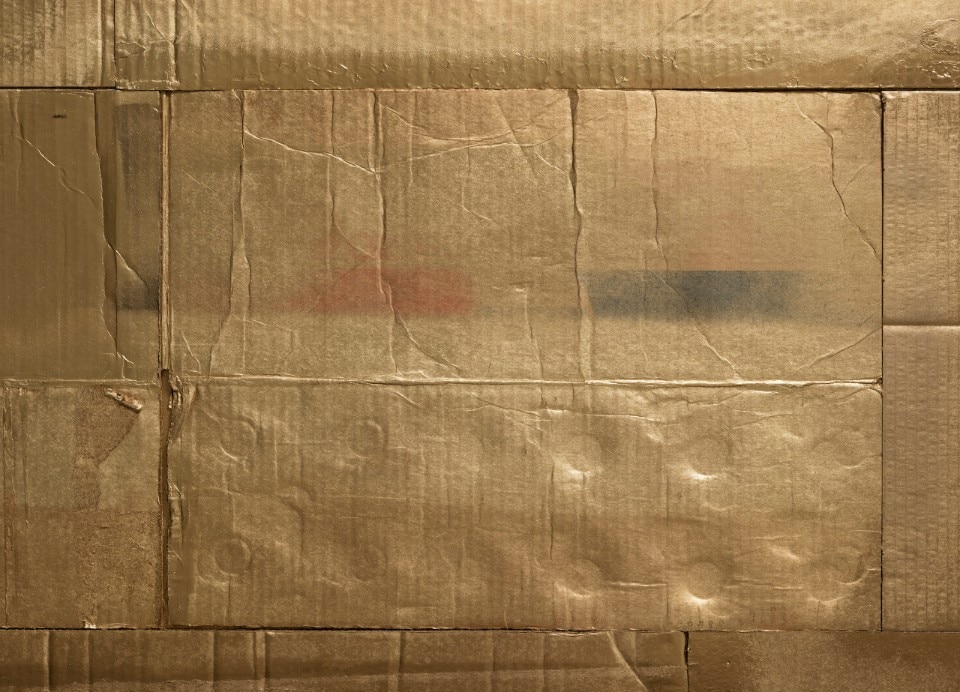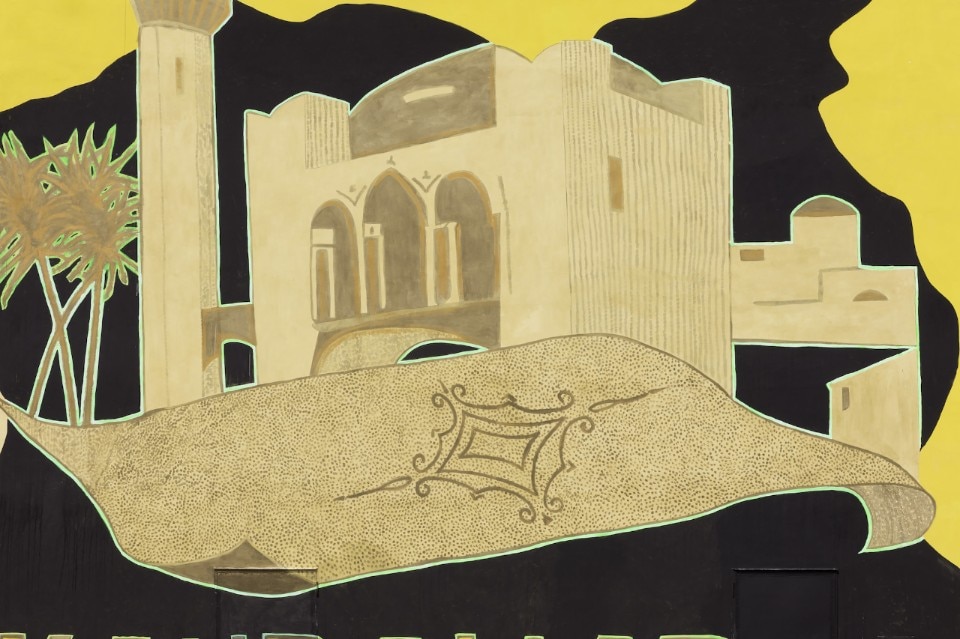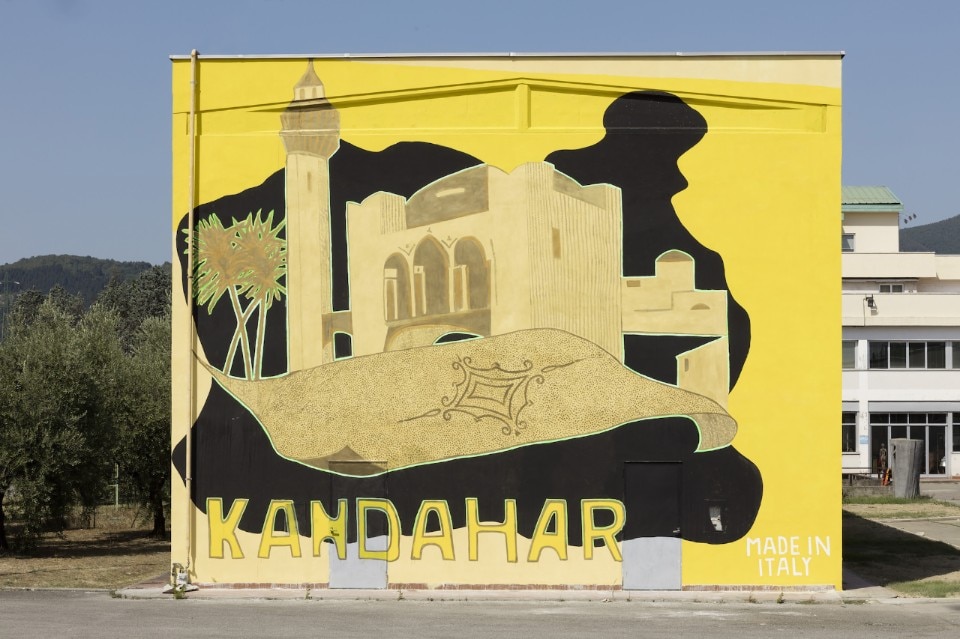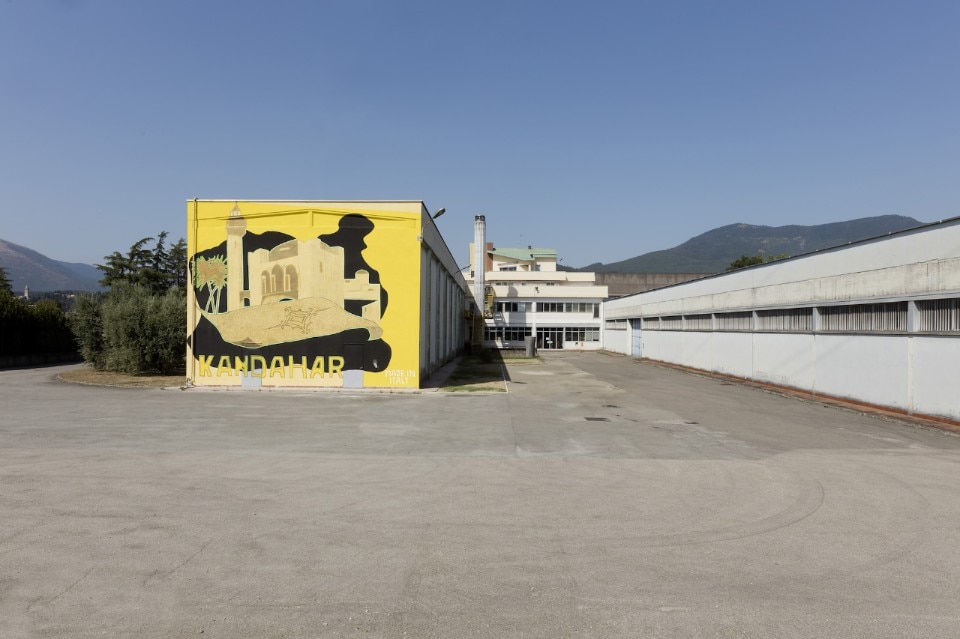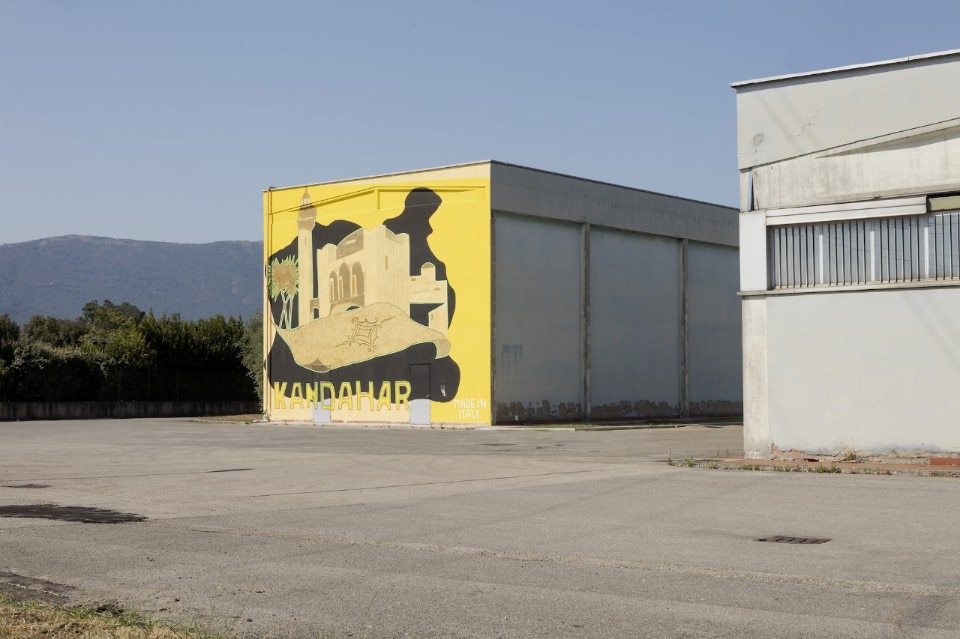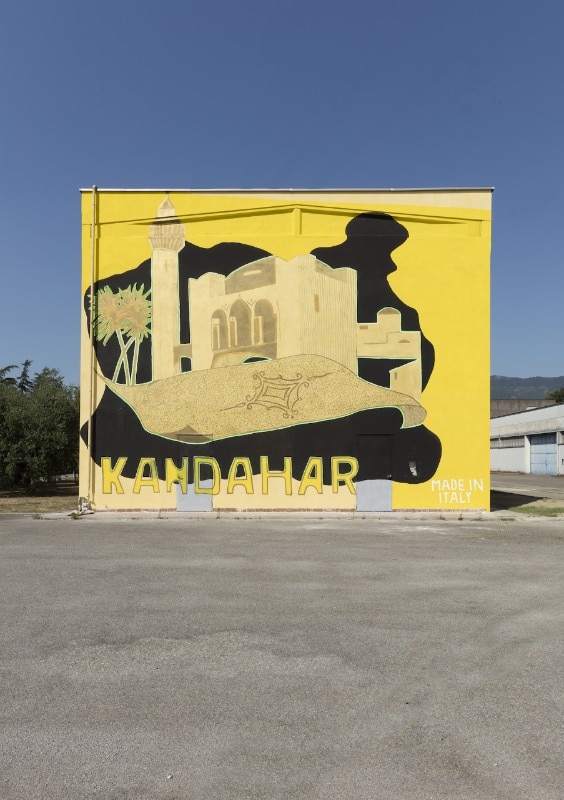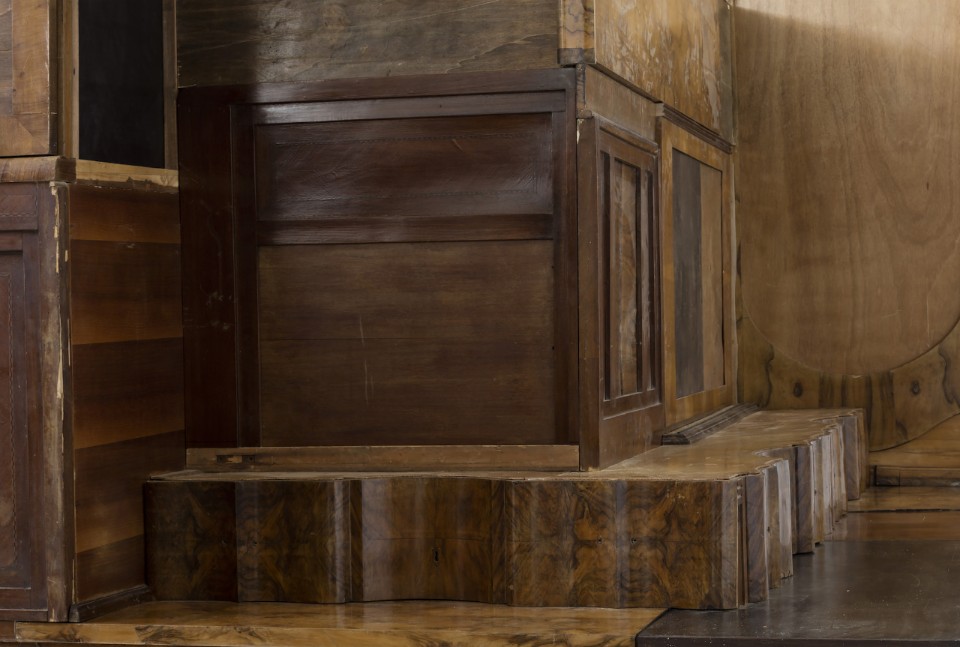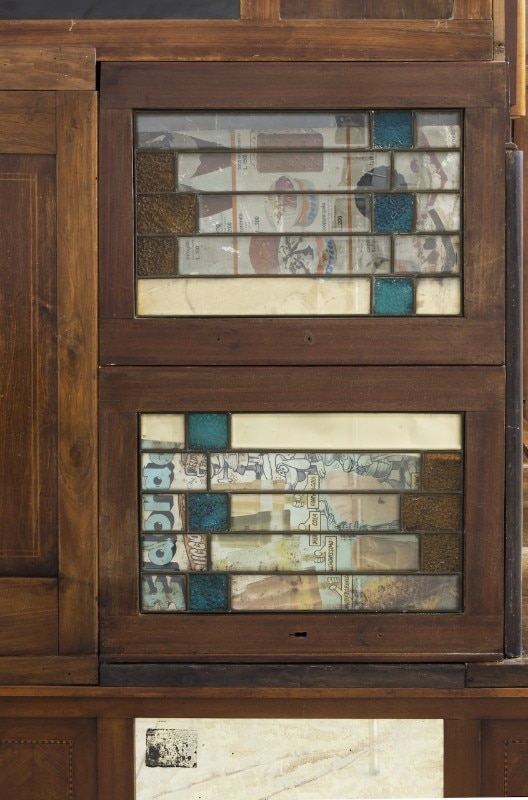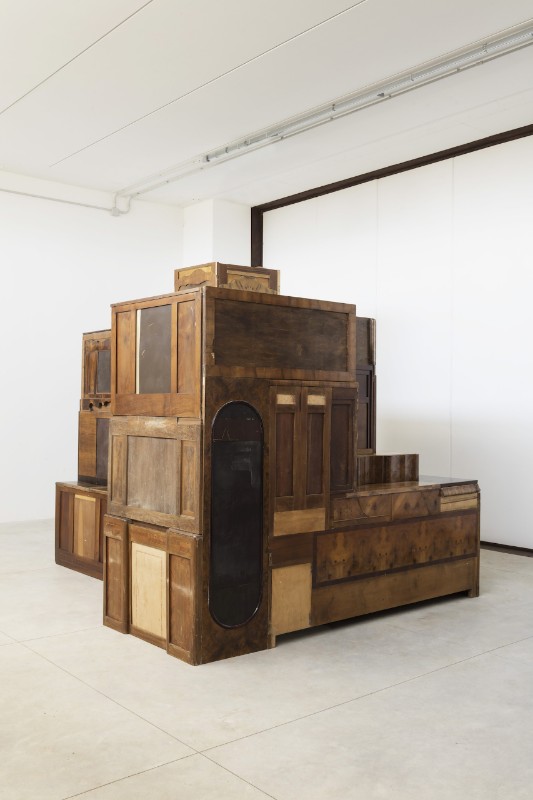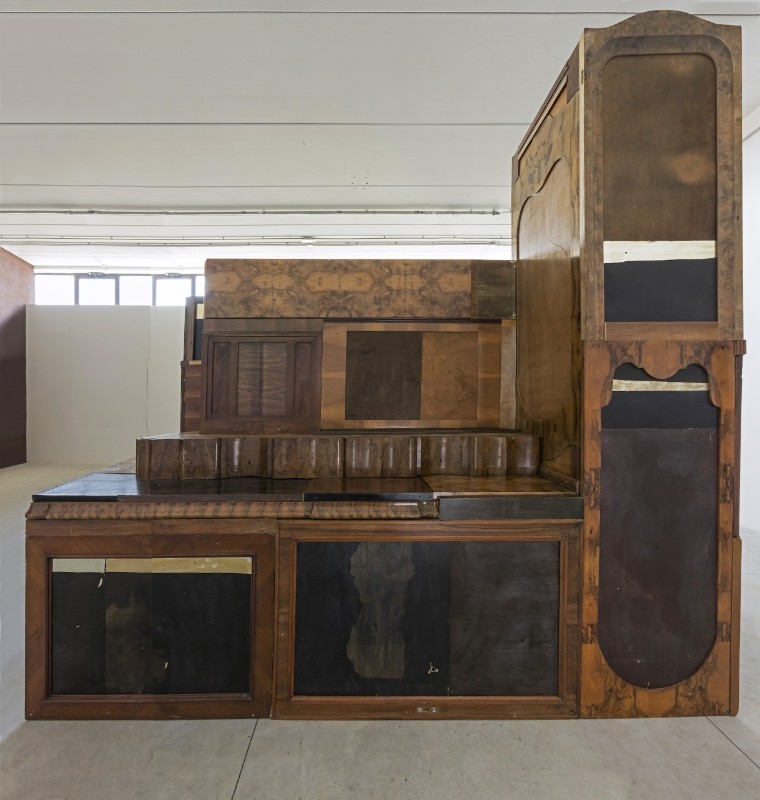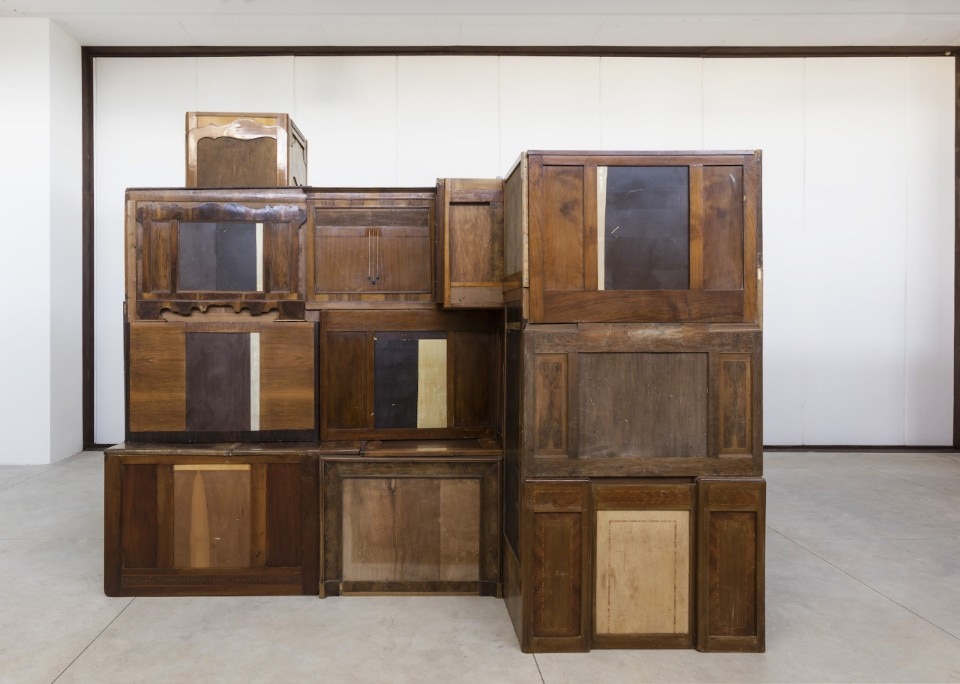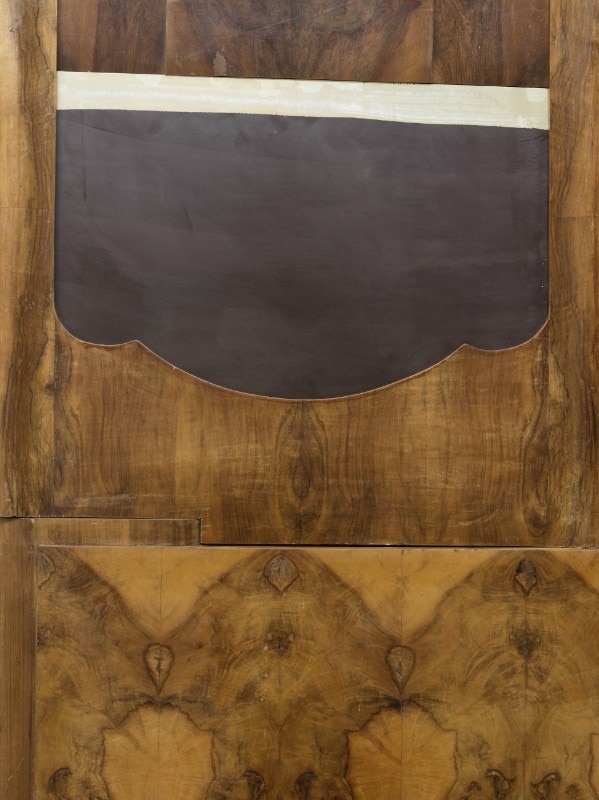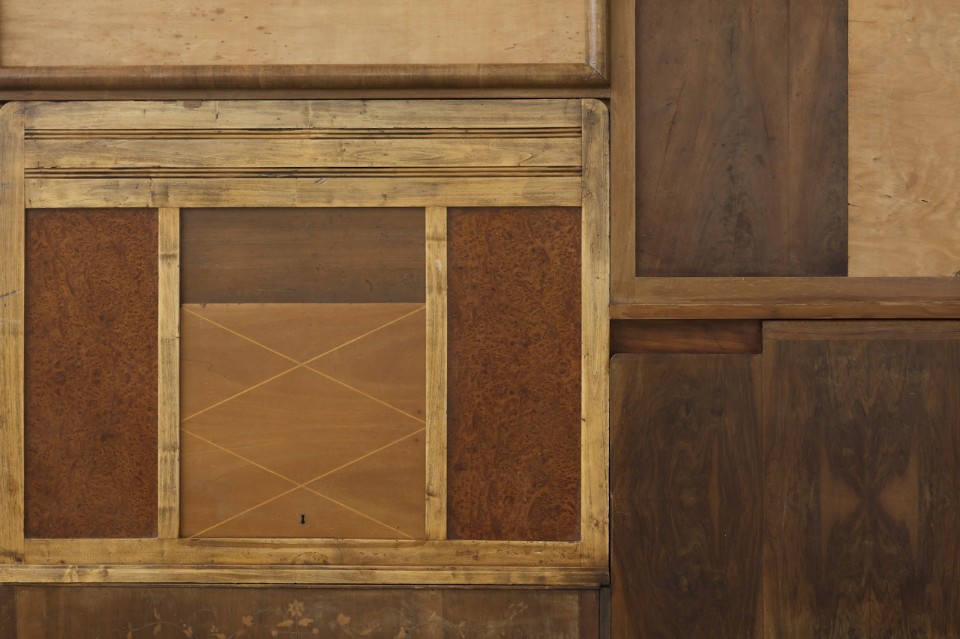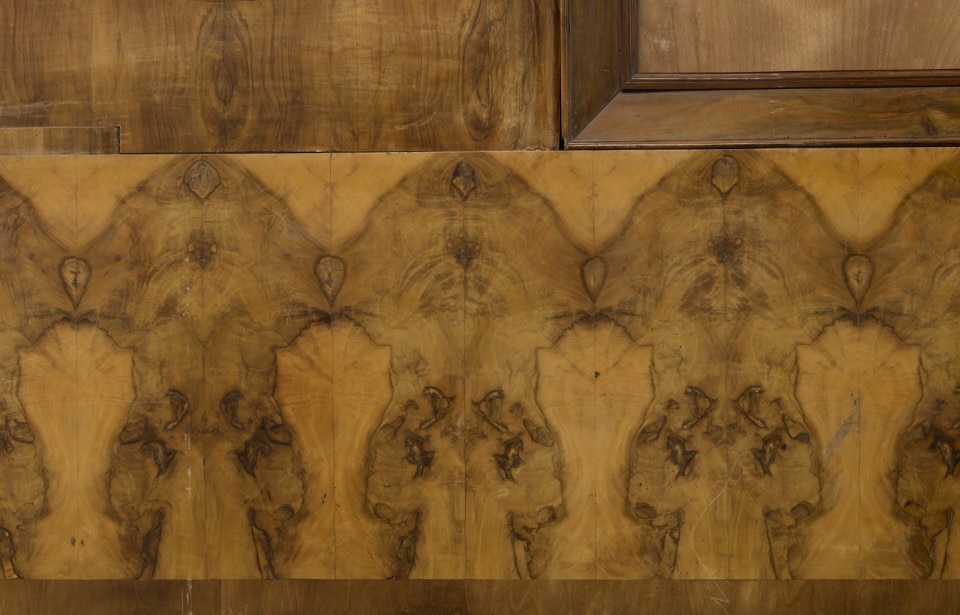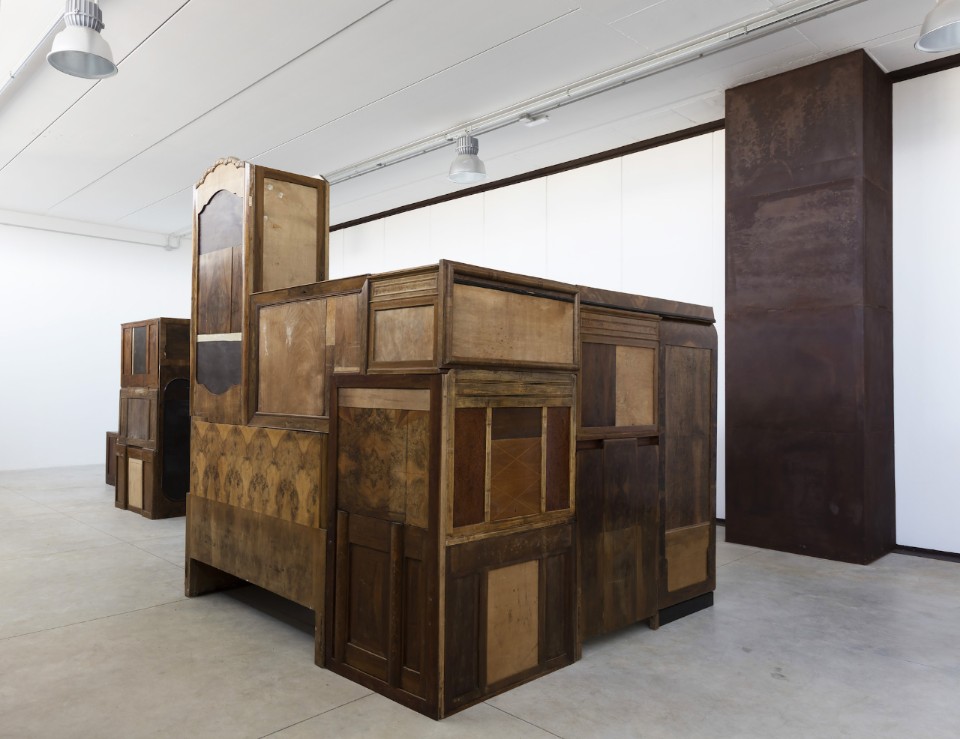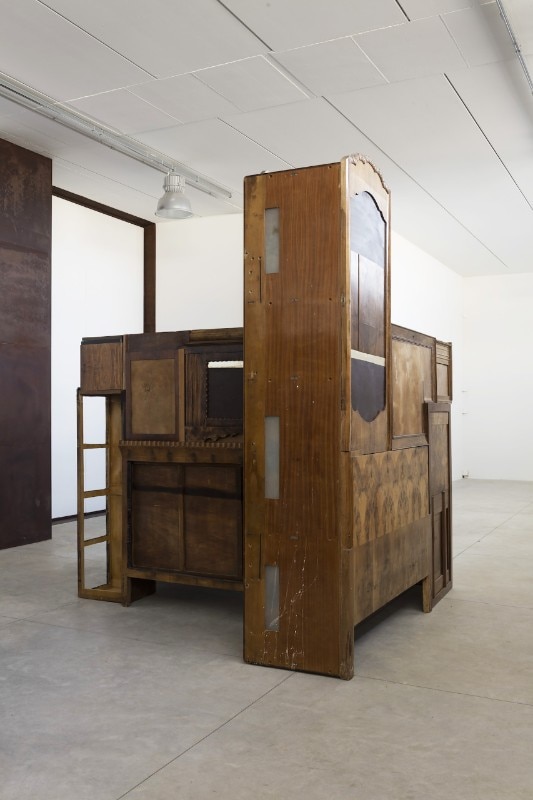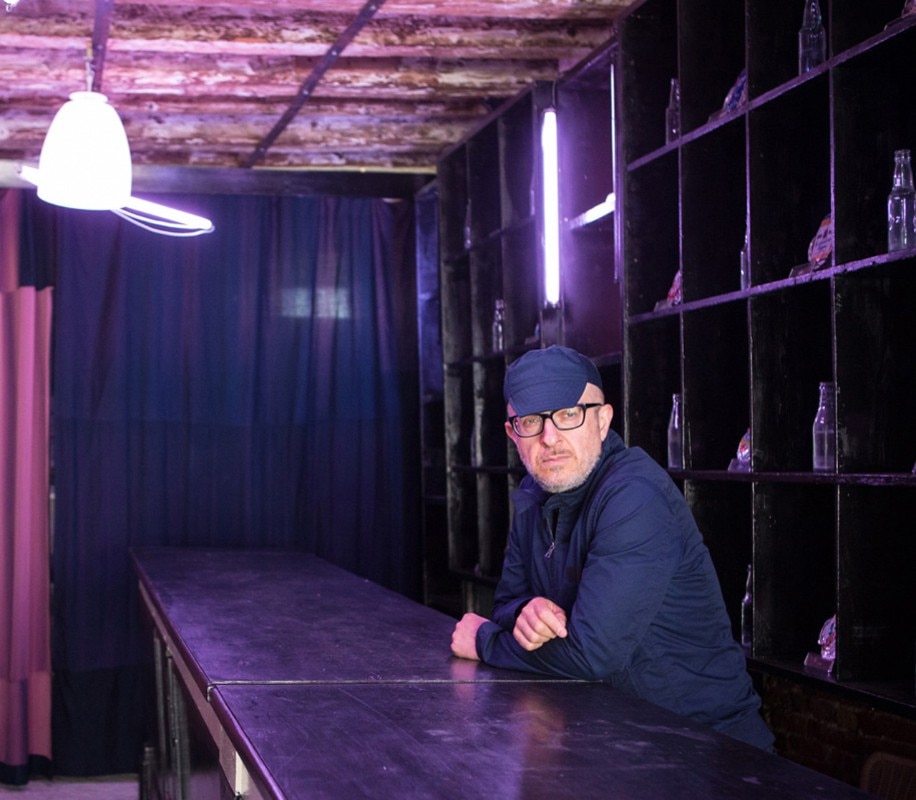We are at the second appointment of Arte in Fabbrica, an exhibition project launched by brothers Fabio and Paolo Gori as a natural outcome of an artistic vocation that has always been present in their family and the DNA of their company. Gori Tessuti e Casa, in fact, which is located in a large factory in the province of Prato, is an authentic treasure chest of textiles, inside which are kept millions of kilometres of fabrics of any material and shade, locally produced or imported from the Far East, object of inspiration for furniture, sets or costumes for film productions. The Gori, former creators of the Fattoria di Celle, where their collection of environmental art resides, have made space and resources available, this time at the service of Flavio Favelli (Florence, 1967), a well-known exponent of the Italian contemporary scene, whose work is characterized by the story of a society and a historical moment captured from an emotional and personal point of view.
“Profondo Oro”, curated by Pietro Gaglianò, is a further declination of this narrative, through the memory of family life, the home and its furnishings from the years of the economic boom. A time when the promise of a gradual and unstoppable progression of well-being seemed tangible, and at the same time translated into a feeling of provincial optimism common to all homes in the country, ending up resembling the aesthetics of its interior decoration. The first witness of this feeling is the neon sign that welcomes the visitor at the entrance of the exhibition: National Office, whose luminous inscription is the bearer of national and patriotic pride that at the same time makes use of the English language, following a completely provincial “manner”.
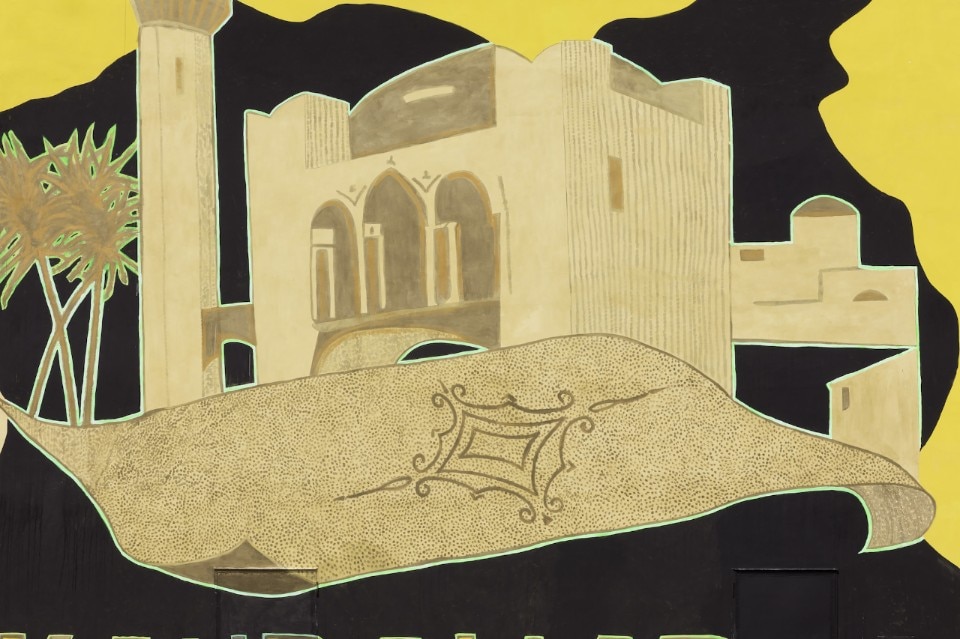
At the centre of the scene are the installations created for the exhibition in Calenzano, Eldorado and Grande Guardaroba: two mute pachyderms turned towards themselves as locked doors, made of that wooden furniture transversal to entire generations, present both in the homes of our grandparents and in those of university students still today. Objects that are no longer functional - which of the furniture have only the appearance, again betrayed after a first glance - on whose surface inlays, veins, set gems and brass parts can be found, pieces assembled with the critical gaze of the pictorial composition. Dear to Favelli is the use of the mirror detached from its door and reassembled upside down, showing the layer of zinc that serves to protect the back of the silvering. It is the Deep Gold to which Favelli refers, whose value does not lie in the preciousness of the material, but in the creed of an Italian bourgeoisie and its baggage of certainties that characterized the sentimental temperature of the second half of the twentieth century in our country.
“Deep gold is both an ethical and spiritual dimension, referring to the value of the work that has made it possible to accumulate material goods endured for decades, but it is also of a formal nature because of the preciousness that gold confers,” says the curator Pietro Gaglianò. “In Favelli’s imagination, there is the idea that all these mirrors, these pieces of furniture, these materials, have also absorbed the life of the people inside the houses in which they lived for a long time. It’s the narration of a universal story – of production, of transmission, of possession – that becomes at the same time a plurality of subjective, individual stories”. The gold of the patina on the surface transforms the ordinary into epic, the two-dimensional into sculptural: this is the case of Tempo Aureo, 2020, the two works on the wall composed of assembled materials, from which emerge the logo of Chesterfield cigarettes but also the knurling of the torn cardboard. Objects of daily use that undergo a radical paradigm shift.
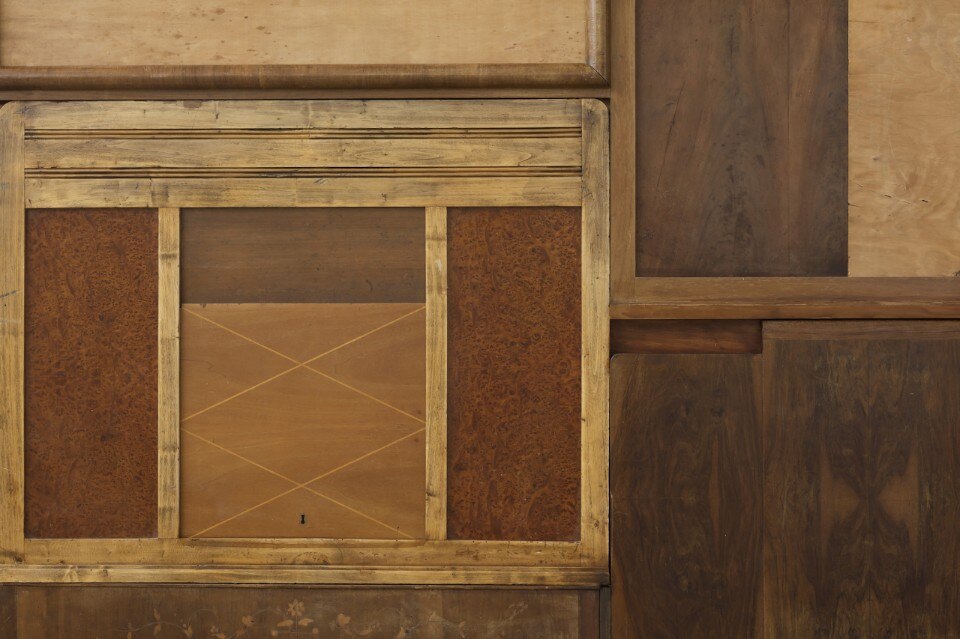
in Italy, the large mural painted on the external facade: a site-specific work, the one that through a series of cognitive displacements tells more closely the industrial and productive history of the Prato area. An oriental palace, a flying carpet and writing in Arabic Arabic are depicted here. It is actually an iconography taken from the label of a local textile company, in the years when the persuasive allure of advertising was beginning to become an essential element. And here the carpet is actually the representation of a blanket, the word “Kandahar” the name of a ski resort in southern Germany. Once again a fallacious promise of exoticism, a reflection of an illusion embedded in the roots of a national-popular history.
The exhibition “Profondo Oro” remains open until March 31, 2021, in the historical headquarters of Gori Tessuti and Casa di Calenzano, which can be visited by appointment in compliance with all anti contagion regulations.
- Exposition title:
- Profondo Oro
- Artist:
- Flavio Favelli
- Curated by:
- Pietro Gaglianò
- Where:
- Arte in Fabbrica, Gori Tessuti e Casa, Calenzano, Firenze, Italy
- Opening dates:
- from September 18, 2020 to March 28, 2021


